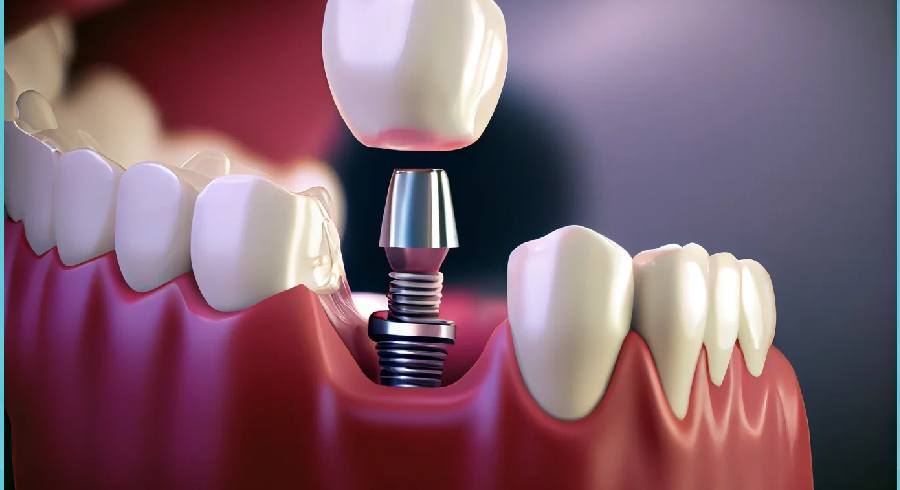
Dental implantation is a common operation for those who need to get their teeth extracted. The procedure involves extracting the unhealthy teeth and replacing them with dental implants.
Nevertheless, since extraction is a complicated operation, most patients wait before getting their implants in place of the extracted teeth. As a result, most people wonder how long their waiting period will last. In this post, we will dive into the dental implantation process to answer this question.
What Is an Implant?
An implant is a medical device surgically implanted into your jaw to restore lost teeth. Usually made of titanium, the implant restores the natural look and feel of the lost teeth while improving the patient's dental health. Dental implants are a viable alternative to dentures or bridgework. It works exceptionally well on a jaw that lacks natural teeth roots and tissue.
Dental implant surgery is usually preferred when the patient loses their teeth due to complications such as infection or gum disease. The dentist treats the affected area and then places the implant. Nevertheless, this treatment process usually extends the period between extraction of the severed tooth and implantation.
With dental implantation, the patient can regain their ability to chew or bite, as well as enhance their appearance.
What Are the Benefits of Implant?
Implantation comes with various benefits for both dental health and appearance. The most prominent are:

-
Dental implants are made to last: Titanium implants usually last longer than their alternatives, providing your mouth with healthy and good-looking teeth. With good care, implants can last up to several decades.
-
Prevents bone loss: When you lose your tooth due to an infection or decay, your jawbone is no longer stressed in that part of the mouth. As a result, your body starts to break down the bone tissue to reabsorb it. Placing a dental implant in the area will stress your jawbone and lower the rate of bone loss.
-
Keeps your teeth stable: When you lose a tooth, the surrounding teeth may move and create difficulties chewing. Dental implants, on the other hand, keep the adjacent teeth stable by filling the gap.
-
Improves your quality of life: Losing teeth might be one of the worst experiences one endures. It causes you to have difficulty chewing, biting, and even speaking. Nevertheless, thanks to a dental implant, you can restore all these abilities and improve your quality of life.
-
Restores your appearance: Gaps in your teeth surely affect your appearance negatively. Nevertheless, teeth loss might cause more than that. Some potential facial changes due to tooth loss are collapsed cheeks and sagging skin. Thankfully, with dental implantation, you can restore your appearance and take your Hollywood smile back.
How Soon Is an Implant Made in Place of the Extracted Teeth?
After the dentist extracts the bad tooth, it usually requires the area to heal before implantation. The healing process can take up to 10 weeks, depending on the patient's recovery. Nevertheless, in some urgent cases, the extraction and implantation can take place on the same day.
There are usually three different types of implantation processes:
Immediate Post-Extraction Implant Placement
When the patient has healthy gums and sufficient jawbone density, the implantation might happen just after the tooth extraction. Usually, the patient can have both extraction and implant placement on the same day.
When the dentist decides that an immediate implant placement is enough, they will place titanium posts into the jaw. Nevertheless, the custom dental crown will be attached afterwards when the area heals without complications.

Delayed Immediate Post-Extraction Implant Placement
Delayed immediate post-extraction implant placement, or early implant placement, happens two or four weeks after extraction.
This type of implant placement is usually done after you lose your tooth due to gum infection or disease. Since your gum and adjacent teeth will be vulnerable to bone loss and bacteria build-up, the area must heal before implantation.
After the area has fully healed, the dentist places the titanium post into your jaw and allows it to fuse before attaching the crown.
Delayed Dental Implant Placement
When your tooth is severely decayed and takes longer to heal, you will have to wait longer to have your implant. In some cases, your dentist might even need to treat bone loss by grafting bone material onto the affected area. Also, regular check-ups might be required to see if the jaw is healing well.
Delayed implant placement usually takes around six months and requires surgical insertion of the dental implant. In some cases, the operation may take up to twelve months, depending on the area's healing process.
Are Dental Implants Painful?
Another common question most people ask is whether dental implants are painful. Nevertheless, you need not worry; we can confidently say you won't feel anything during implantation, as it is performed with either local or general anaesthesia.
It is true that when the numbness wears off after the procedure, the patient may feel a tad of pain and discomfort in their mouth. Yet, this pain should not be too sharp and completely disappear after a few days.
If you feel severe pain lasting more than a few days, it might be due to an improperly fitted implant. In this case, you should immediately visit your dentist and have a check-up.




